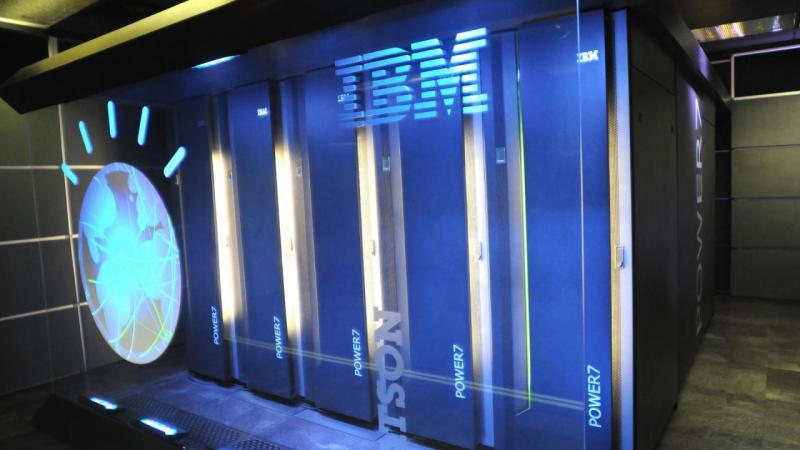
IBM and Rensselaer Polytechnic Institute announced the creation of the new Center for Health Empowerment by Analytics, Learning, and Semantics (HEALS). Located on the Rensselaer campus, the HEALS center is a five-year collaborative research effort aimed at researching how the application of advanced cognitive computing capabilities can help people to understand and improve their own health conditions.
“This collaboration between Rensselaer and IBM, which combines our significant research strengths in cognitive computing, could generate insights which will aid clinicians with more effective treatments for individual patients and overall efficiencies in the health care system,” said Shirley Ann Jackson, president of Rensselaer. “In this expansion of our long-standing research partnership with IBM, I am pleased that HEALS will advance preventive health care.”
“Cognitive computing is poised to transform every profession, industry, and economy, and IBM is committed to helping to solve the world’s biggest health challenges,” said Dr. John E. Kelly III, Senior Vice President, Cognitive Solutions and Research at IBM. “We are excited to collaborate with Rensselaer on the development of the HEALS research center to advance precision medicine with the help of Watson technologies and to help improve the quality of care clinicians can deliver to individuals.”
The new center’s vision is to advance the understanding of chronic disease prevention through data-driven discovery and analysis of factors that can help predict the propensity to develop chronic conditions and provide personalized health recommendations and lifestyle guidance for clinicians to deliver to their patients.
Specifically, the center plans to develop cognitive tools for health empowerment that use analytics, knowledge-driven learning, and semantics-based interrogation to address data-to-knowledge gaps to enable clinicians and patients to help manage and prevent of chronic diseases and conditions.
“We now have powerful computational and experimental tools that drive personalized health risk predictions. HEALS will exploit innovative capabilities in cognitive computing coupled with human behavior, smart device development, and semantic data analytics aimed at identifying patients at risk of chronic diseases for clinicians before the disease becomes difficult to treat,” said Jonathan Dordick, vice president for research at Rensselaer. “This approach has the potential to revolutionize health care, reduce cost, and enhance the quality of life.”
In addition to developing new computational technologies, RPI researchers at the HEALS center aim to collect relevant clinical and non-clinical knowledge, as well as gather and integrate user-generated data from such sources as individual lifestyle questionnaires, health or wellness data from mobile fitness tracking devices, and social network data from shared online activities.
The challenge lies in the personalized coupling of curated knowledge and individual data, according to James Hendler, director of the Rensselaer Institute for Data Exploration and Applications (IDEA) and the Tetherless World Professor of Computer, Web, and Cognitive Sciences at Rensselaer, who will serve as director of the HEALS center.
“IBM’s Watson technology has made major inroads in life sciences and health,” said Hendler. “Our goal now is to use Watson to help clinicians prevent people from developing chronic conditions by providing them with health information customized for their specific medical, environmental, and work/life situations. Doing this requires big data analytics, state-of-the art machine learning, and the technologies of the semantic web, allowing us to combine and process data from many different sources and use that information to help clinicians improve the quality of life for people who are at risk for diabetes, hypertension, and other chronic diseases.”
The HEALS research center is part of IBM’s Cognitive Horizons Network (CHN), a network of the world’s leading universities committed to working with IBM to help accelerate the development of core technologies needed to advance the promise of cognitive computing. CHN members are dedicated to accelerating the application of AI and related technologies to some of the world’s most enduring challenges, ranging from disease and the environment to transportation and education.
“Through the Cognitive Horizons Network, we are teaming with leading universities like RPI to explore and expand the societal impact of cognitive computing technology,” said Henry Chang, program coordinator of HEALS, IBM Research. “The HEALS research center will study and work to advance the understanding of chronic condition identification in the pre-disease stage by identifying and analyzing actionable personal-risk determinants via a coupling of the knowledge of lifestyles risks and data-driven health causal and correlational factors.”
Additional Rensselaer faculty involved in leading the center’s research will include Deborah McGuinness, Tetherless World Senior Constellation Chair and professor of computer and cognitive sciences; Mohammed Zaki, professor of computer science; Bulent Yener, professor of computer science and director of the Data Science Research Center; Kristin Bennett, associate director of the IDEA and a professor in the mathematical sciences and computer science departments; and Jonathan Dordick, vice president for research and the Howard P. Isermann Professor of Chemical and Biological Engineering. The center will also include faculty from biology, engineering, social sciences, and management working together with IBM researchers to help change the way individuals approach their own health care.
Filed Under: Drug Discovery




